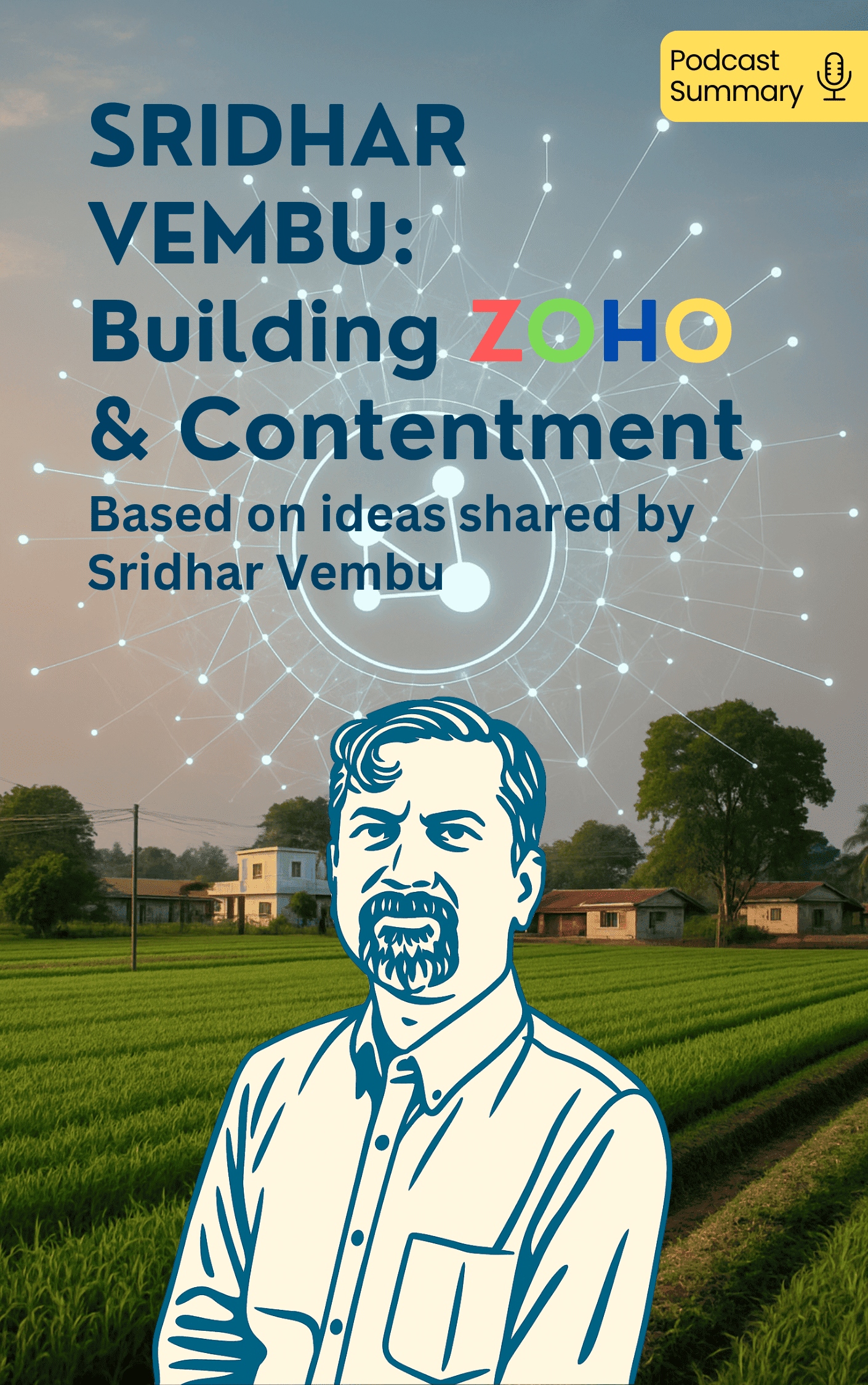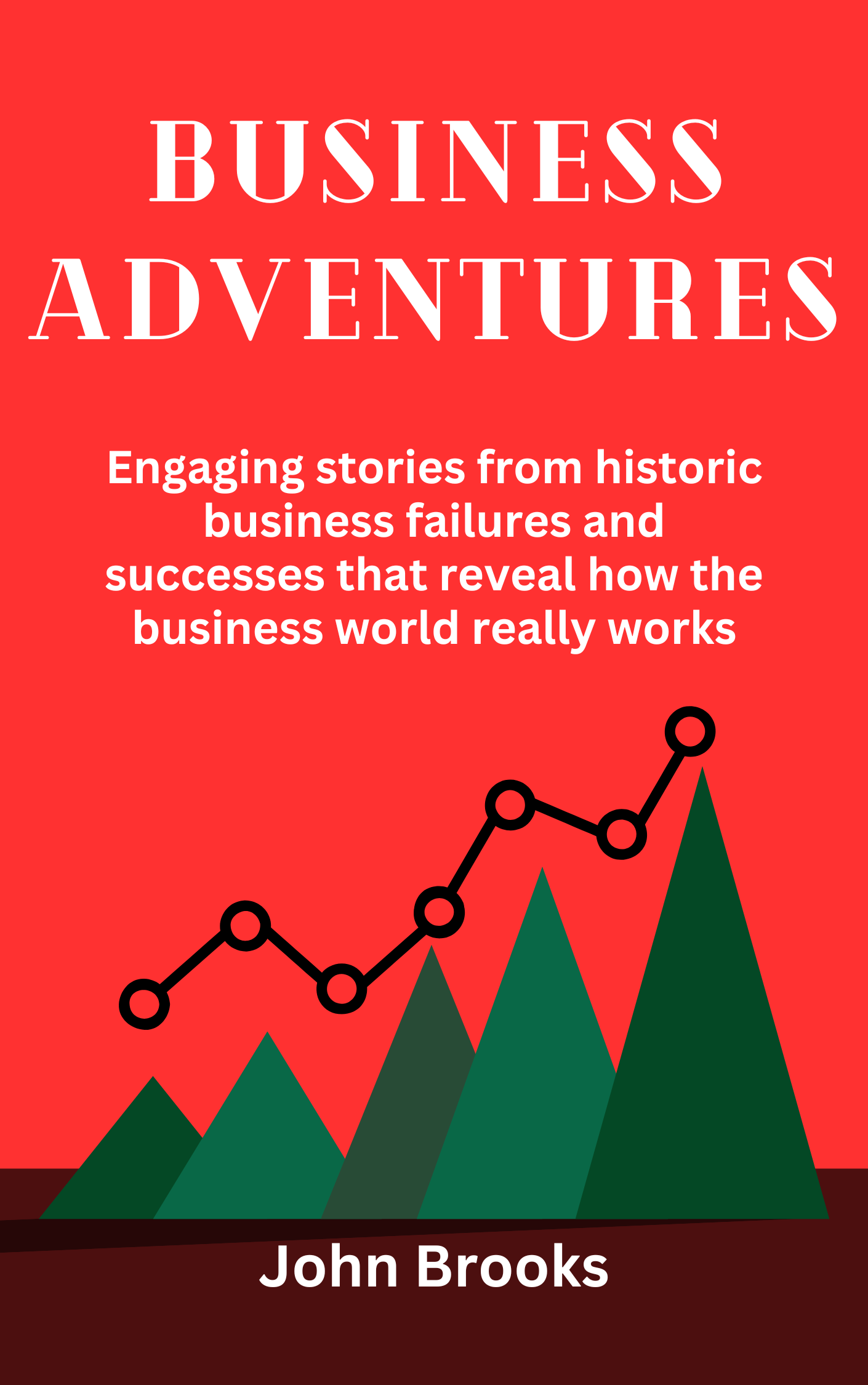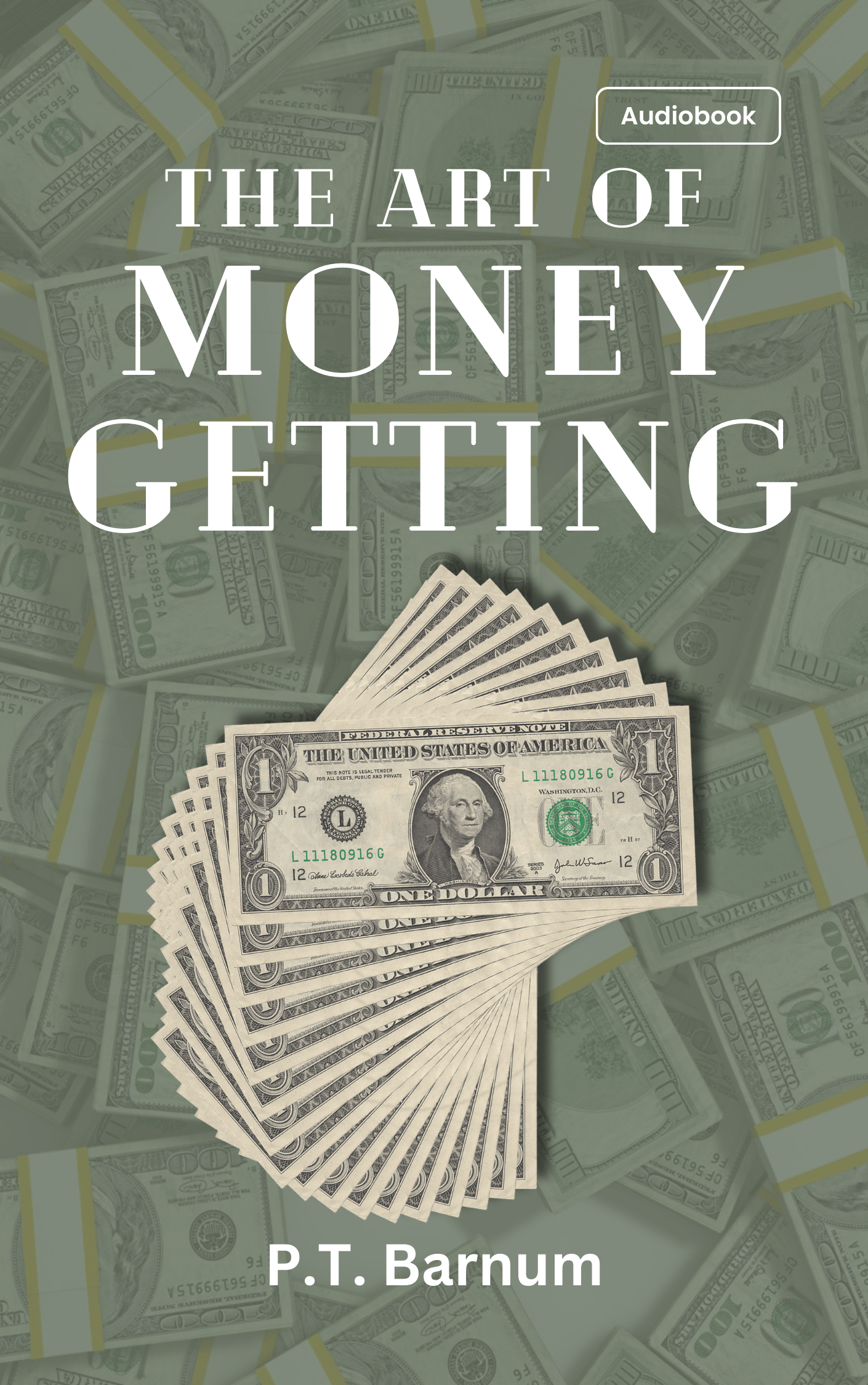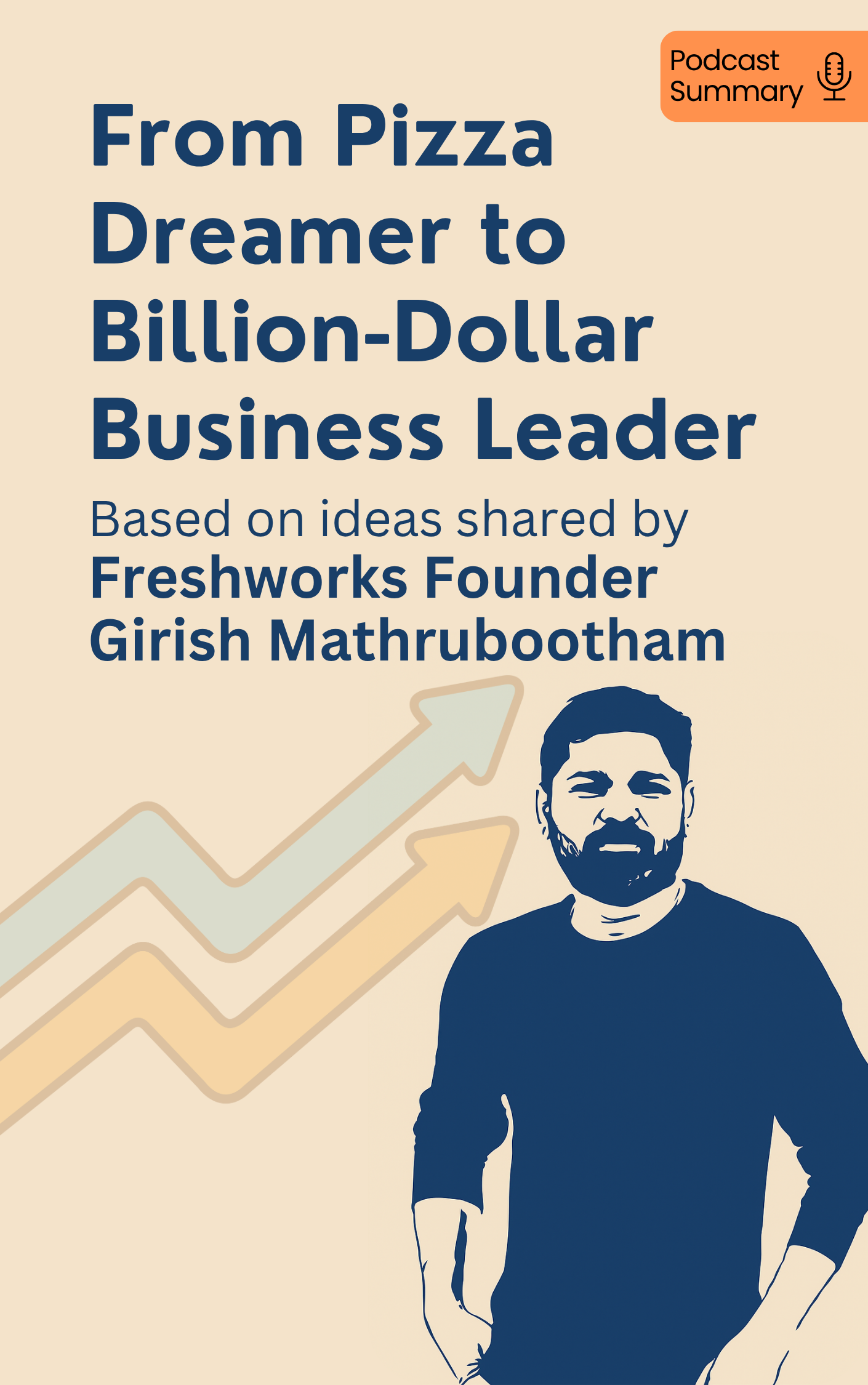Introduction
A Vision for Enduring Business
Sridhar Vembu, the founder of Zoho, offers a distinctive perspective on business, technology, and societal development that stands in stark contrast to conventional startup wisdom. His insights are deeply rooted in personal experiences and a philosophy that prioritizes long-term sustainability, community impact, and a balanced way of life over fleeting financial metrics. He champions a model that seeks to redefine success, not just for a company, but for an entire nation.
First, we'll dive into the unexpected core skill he believes every entrepreneur must master.
The Entrepreneur's Core Skill: Learning to Sell
Sridhar Vembu initially envisioned a career in academia, pursuing a PhD in Electrical Engineering at Princeton with the goal of becoming a professor. However, he soon realised that solving abstract mathematical problems felt irrelevant to building tangible things, which he yearned to do as an engineer. His journey into entrepreneurship was sparked by a colleague at Qualcomm, Onish, who suggested they start a company together.
A pivotal moment in Sridhar's early entrepreneurial days came when a customer bluntly told him he was an "idiot" because he didn't know how to sell and had drastically undervalued his software. This impactful feedback made him realise a crucial lesson: the first job of an entrepreneur is to learn to sell. Even a brilliant engineer must be able to make sales calls, convince customers, and navigate objections to succeed in business. This personal experience underscored the importance of direct engagement with the market, a skill he had to acquire on the job.
This foundational understanding of sales then guided his broader business philosophy, which we'll explore next.
The Marathon, Not the Sprint: Rejecting Short-Term Growth
Vembu strongly challenges the prevailing startup model that focuses on rapid growth at any cost. He critiques the common approach of building a single product and spending heavily (often 70-80%) on sales and marketing, while allocating minimal resources (e.g., 10%) to research and development (R&D). He compares this to using steroids: it might lead to quick success, but it lacks "staying power" and harms the "body" of the company in the long run.
He views such companies as driven by short-term, month-to-month, or quarter-to-quarter pressures, leading them to stagnate or sell out. Instead, Sridhar defines business as a "marathon, an evolving marathon," a perspective he believes is akin to how Japanese and Korean companies like Honda and TSMC (Taiwan Semiconductor Manufacturing Company) operate.
A defining decision for Zoho, early on, was the collective choice to reject a $25 million acquisition offer in 1999 and commit to never taking outside money. This commitment stemmed from a shared belief among the founders and his siblings that they were not "addicted to money or wealth". This financial independence provides Zoho with the freedom to invest in long-term R&D and expansion without being swayed by quarterly profit expectations, a luxury public companies often lack.
This long-term, self-funded approach allowed Zoho to build resilience, a topic we'll explore next.
Building Resilience Through Diversification and R&D
The dot-com bust and the 9/11 attacks in 2001 were transformative events for Zoho, serving as a harsh but invaluable lesson. Sridhar Vembu witnessed approximately 99% of the 400 optical companies, many of whom were Zoho's customers, go out of business. This period of "hardship" and "tough times" taught him the critical importance of diversifying business and not putting "all eggs in one basket". Zoho reinvented itself by exploring new markets, particularly in Japan and China, where they signed deals with emerging telecom giants like Huawei and ZTE.
This experience solidified his belief that a long-term business must invest heavily in R&D to achieve "strategic depth". He highlights companies like Toyota, which started by making textile machinery before cars, and TSMC, which became a world leader in chip fabrication by relentlessly focusing on advanced manufacturing technology over decades. Vembu advocates for India to invest in deep R&D across various sectors, from specialized metallurgy for critical instruments to drone technology, to move beyond low-wage jobs and compete globally. He sees R&D not as an academic pursuit but as a practical, focused effort that can be achieved by small, dedicated teams.
The commitment to R&D and self-sufficiency extends beyond product development to talent development, which we'll discuss next.
Rural Development and Talent Beyond Traditional Education
Sridhar Vembu champions the idea of decentralised growth, inspired by the presence of cutting-edge companies in rural areas of countries like Germany, Switzerland, and Japan. Zoho has actively embraced this by establishing development centres in rural India, such as in Tenkasi and the Sadarpur District of Uttar Pradesh. He believes that India needs to "get rich before we grow old," highlighting the importance of utilising the current demographic dividend, especially as birth rates are dropping.
A cornerstone of this approach is Zoho's commitment to training and hiring individuals without formal college degrees through initiatives like Zoho Schools. Vembu notes that industry values these trained professionals, and even capable students from urban, upper-middle-class families are choosing this path over traditional college education. He believes "learning by doing" is the most effective way to train smart young people, enabling them to become productive in as little as six months. This strategy helps Zoho maintain a low employee turnover and attracts individuals who prefer rural living or wish to return to their roots, even drawing professionals from distant cities like Kolkata.
These initiatives are deeply intertwined with Sridhar's personal philosophy, we'll explore next.
Redefining Prosperity: Rooted in Humility and Contentment
Beyond business strategy, Sridhar Vembu's talk reveals a profound personal philosophy centred on humility and contentment, values he believes are essential for both individual and societal well-being. He lives in a rural Tamil Nadu village, where his daily routine includes early morning coding, yoga, swimming in the village pond, and walking among cattle crossings. This lifestyle has drastically reduced his energy consumption by a factor of 50 to 70 compared to his time in Silicon Valley.
Vembu stresses that the global pursuit of "more is always better" (as often reflected in economic theories like GDP growth) is unsustainable and is "frying the Earth". He argues that India, with its rich spiritual heritage that values contentment, is uniquely positioned to offer solutions to global challenges like climate change. He feels a deep sense of responsibility to set a role model, especially for the 90% of India's population not exposed to the glamour of unicorn startups, and believes that prosperity should be rooted in contentment.
His personal investments are dedicated solely to R&D or rural development, reflecting his commitment to these dual goals. He also actively engages in sustainability efforts, such as digging ponds to preserve surface water and advocating for a ban on deep borewells to protect aquifers. He believes that for India, and the world, the future lies in "prosperity rooted in contentment," passed on to future generations.
This spiritual and environmental outlook also informs his perspective on the impact of advanced technologies, as we'll see in the next section.
The Decoupling of Production and Consumption in the Age of AI
Sridhar Vembu contemplates the profound implications of technologies like AI and robotics, which could lead to a future where nearly everything is produced at "zero cost" through automation. He poses a critical question: "what do humans do?". For Vembu, the fundamental problem isn't about human utility, but about the "distribution system" – how income reaches consumers if production no longer requires significant human labour.
He identifies a decoupling between production (a technology problem) and consumption (a political economy problem), where consumers are no longer deriving income directly from the production of goods they wish to consume. To address this, he argues that rural citizens must be brought into the "value addition game" through R&D, ensuring they derive income from participating in the production economy. AI, he believes, will affect every industry by automating and accelerating processes, such as discovering new material alloys, but the key is for nations to be at the forefront of developing such software and technology themselves.
Ultimately, his vision integrates technological advancement with a thoughtful approach to human well-being and societal structure.









